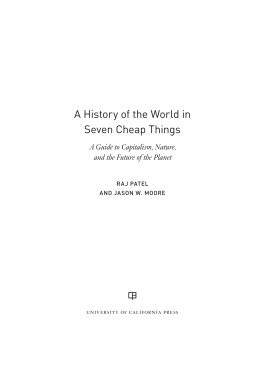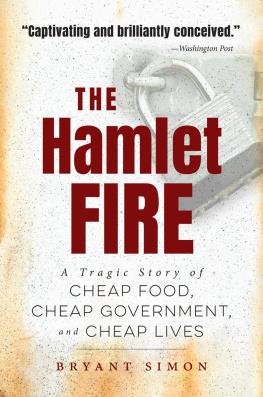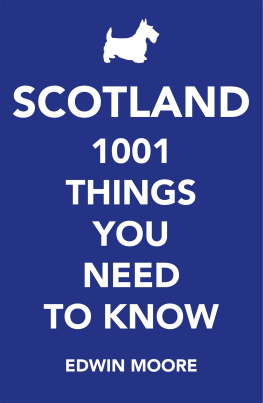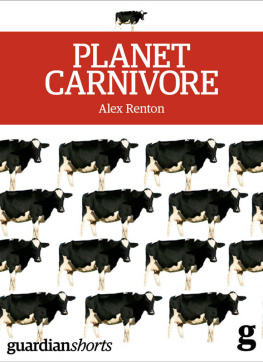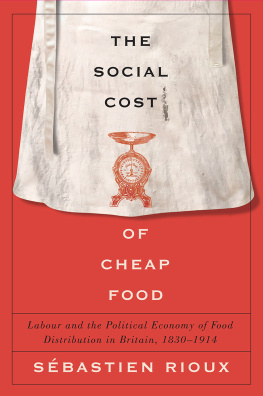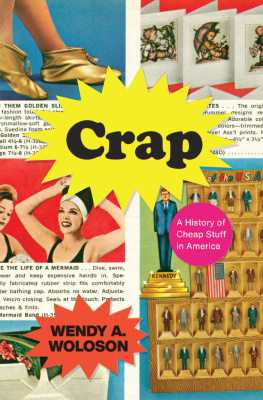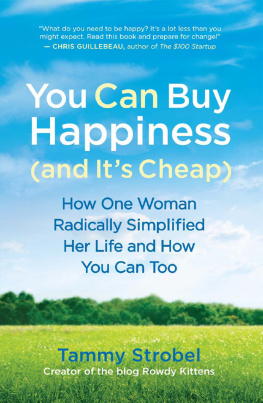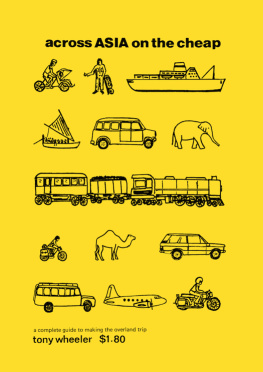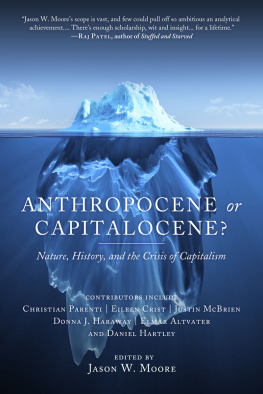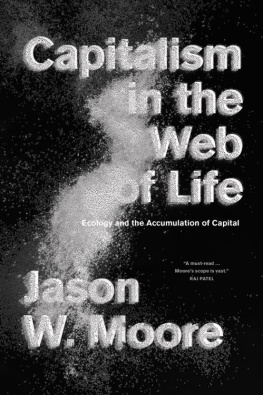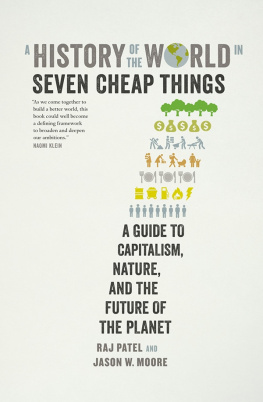Acknowledgments
In a book that seeks to understand how we have come to where we are, our acknowledgments must begin with our families and the extended webs of kin, love, intellect, and reciprocity that made it possible for us to be cared for as we wrote, made us care about what we wrote, and helped us understand far better what we were doing. We worked in the hope that our children might one day live within a different web of life.
The communities that made this book possible were vast, from the supporting colleagues seen and unseen at our respective institutions to those whose work made the pageor screenon which you read these words. At University of California Press, no reparation would be too great for Kate Marshalls championing of the book, the boards decision to accept it, our reviewers invaluable suggestions, or the toil of Bradley Depew, Dore Brown, and the design team. Were particularly grateful for the editorial choices that allowed us to work with Juliana Froggatt, who made this book far more sensible.
We wouldnt have had the chance to collaborate with the press had it not been for Caroline Eisenmann, Karolina Sutton, and Kris Dahl at ICM. And we wouldnt have had occasion to approach them had it not been for Mark Metzler, who in his time at the University of Texas at Austin brought Jason to Rajs door, making it possible for us to meet, plot, and ultimately write this book.
Raj: Again, thanks to Mark Metzler for the gift of getting to meet, and learning to see the world anew through, Jasonand then for providing us such valuable insights into our work at the University of Texas History Department seminar. Elsewhere on the forty acres, Eric Tang, Sharmila Rudrappa, Jason Cons, Bob Jensen, Billy Chandler, Karen Engle, and their colleagues in black studies, Asian American studies, anthropology, radio, television, film, and law were deep sources of inspiration. At the Lyndon Baines Johnson School of Public Affairs, Erin Lentz and Jamie Galbraith were kind enough to entertain strange ideas over beer, and Sydney Briggs suffered an early draft with grace and acuity. My terrific students indulged a semester of successive iterations of the arguments in this book, and Im pleased to recognize how much I owe Bryce Block, Leo Carter, Lucia Gamboa, Caitlin Goodrich, Jose Guzman, Ben Hirsch, Brian Jackson, Tim Knoedler, Josh Meuth Alldredge, Alex Payson, Bobak Reihani, Scott Squires, and Mary Vo. I owe a particular debt to the magnificent staff at the University of Texas at Austin Libraries, especially at the Benson Latin American Collection and Perry-Castaeda Library.
Conversations with Steven Tomlinson, Eugene Sepulveda, Tom Philpott, Rebecca McInroy and David Alvarez, Tim and Karrie League, Shawn Sides, and Graham Reynolds have always improved a project conceived in the academy. Malik Yakini, Kandace Vallejo, Bianca Bockman, Yotam Marom, Deirdre Smith Shabaaz, and the Wildfire Project board and team always asked the right questions, and the UC Berkeley geography shock troops, with brilliant graduate students ably directed by Gill Hart, Nathan Sayre, Richard Walker, Michael Watts, Comrade Boal, and the Retort collective, knew where to look for answers.
Versions of this book were shared with participants in a few venues, from the Unit for Humanities at Rhodes University (UHURU) seminar (at the University Currently Known as Rhodes University), always benefiting from Richard Pithouse, Vashna Jagarnath, and Michael Neocosmos, to two Initiatives in Critical Agrarian Studies conferences, through which Jun Borras made it possible to imagine completing this book. At the International Studies Association, Andrej Grubai led a merry panel, including Christopher K. Chase-Dunn, Barry Keith Gills, and Denis OHearn, in fine conversation.
An embarrassing list of people have read or heard slices of the book and shared how it might be improved. Deep thanks, then, to Kolya Abramsky, Rachel Bezner Kerr, Jun Borras, Zoe Brent, Chris Brooke, Harry Cleaver, Josephine Crawley-Quinn, Silvia Federici, Harriet Friedmann, Leland Glenna, Sam Grey, Shalmali Guttal, Friede Habermann, Naomi Klein, William Lacy, Phil McMichael, Daniel Moshenberg, Joe Quirk, Jackie Roth, Olivier De Schutter, Daniel Bowman Simon, John Vandermeer, and Ken Wilson for their time and wisdom.
Jason: My thanks go first to my always gracious and ever insightful coauthor, Raj, for his vision that world-ecologys relevance extends far beyond the universityand that it needs this book to do that. This book is possible only because of the care, love, and support of Diana C. Gildea and Malcolm W. Moore, who sustained our small family through the many weekends and evenings filled with writing. Marge Thomas, as ever, helped me to put this book into a wider vision and personal practice of planetary healing. The world-ecology conversation to which this book contributes has been nourished by a wonderfully gracious and intellectually generative community of scholars, including A. Haroon Akram-Lodhi, Fredrik Albritton Jonsson, Elmar Altvater, Martin Arboleda, Gennarro Avallone, Luke Bergmann, Henry Bernstein, Jun Borras, Neil Brenner, Gareth Bryant, Terry Burke, Bram Bscher, Jennifer Casolo, Daniel Aldana Cohen, Sam Cohn, Hanne Cottyn, Sharae Deckard, Treasa De Loughry, Marion Dixon, Barbara Epstein, Henrik Ernsston, Sam Fassbinder, Harriet Friedmann, Clodagh Gannon OMalley, Diana C. Gildea, Bikrum Gill, Andrej Grubai, Daniel Hartley, Aaron G. Jakes, Gerry Kearns, Steve Knight, Zahir Kolia, Markus Krger, Benjamin Kunkel, Nick Lawrence, Emanuele Leonardi, Sasha Lilley, Larry Lohmann, Peter Marchetti, Justin McBrien, Laura McKinney, Phil McMichael, Fred Murphy, Michael Niblett, Andrzej Nowak, Denis OHearn, Kerstin Oloff, Christian Parenti, Michael Paye, Stephen Shapiro, Beverly Silver, David A. Smith, Marcus Taylor, Eric Vanhaute, Richard Walker, Immanuel Wallerstein, Michael Watts, Tony Weis, and Anna Zalik.

